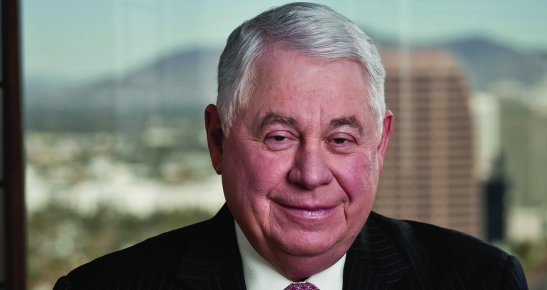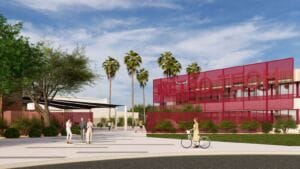CEO Richard Adkerson discusses the global Copper market, and how the recent economic recession has affected Freeport-McMoRan Copper & Gold.
Richard Adkerson
Title: CEO
Company: Freeport-McMoRan Copper & Gold
How did the recession affect Freeport’s global markets?
Copper, which is our primary product, but all of our products actually, is sold on the basis of a globally set price. When the financial meltdown occurred in the second half of 2008, it had a dramatic effect on copper prices and the prices of other commodities that we produce. When I say dramatic, it was very sudden and very significant. In the third quarter of 2008, the price of copper averaged $3.50 a pound. By mid-December, it was below $1.50 a pound, and many analysts expected it to go even lower.
We sell about 4 billion pounds of copper per year, so when we lost $2 a pound that was like $8 billion gone very rapidly off of our top line. We had to respond very quickly. And I’m very proud of our organization on how we did respond. We cut back hard cost production, we deferred capital projects, we cut back on our corporate G&A expenses and adjusted the cost structure of our business to deal with the lower prices. And we were prepared to deal with that for some period of time. Fortunately, as 2009 progressed, by mid-year China had emerged with such strength that prices came back stronger and quicker than most in the industry and analysts expected. But we were prepared to deal with it for some time because it was so uncertain.
Where do you see prices trending in the next few months?
We never know and we never try to predict what prices are going to do in the near term and we don’t run our business on any particular projections of a price. We have a lot of confidence about the world’s need for copper and about the longer run positive nature of the markets that we’re in. In the near term, though, you can develop different scenarios where prices may increase, prices may drop in today’s world — with all the events going on in Northern Africa and the Middle-East, with the issues associated with Japan … and with the issue in China of the government trying to slow economic growth and trying to avoid a bubble situation.
Having said that, as we sit here talking today, prices are well above where they were at their highest in 2007-2008. As a result of that, we are generating lots of cash flow, which has allowed us to increase the dividends that we pay to our shareholders.
What global markets are seeing increases in demand?
(China) developed originally on its export business, but now its internal economy is so strong and it continues to build infrastructure: housing, transportation, communications systems — and all of that requires a lot of copper and other basic materials to support that. … Behind China are the rest of the undeveloped nations in Asia … Beyond that, Eastern Europe, South America and Africa are going to be major markets.
How has Freeport reached out to former Phelps Dodge mining communities in Arizona?
We have a lot of high regard for the historical importance of Phelps Dodge to Arizona and the Southwest United States. … In Arizona we’ve gone into the communities and continued to interact with those communities to form partnerships … I think we spent $25 million last year in supporting communities and activities in Arizona alone.
[stextbox id=”grey”]
Vital Stats: Richard Adkerson
- Joined Freeport-McMoRan Copper & Gold in 1989
- A former partner and managing director of Arthur Andersen & Co
- From 1976 to 1978, he was a Professional Accounting Fellow with the Securities and Exchange Commission in Washington, D.C.
- Chairman of the International Council on Mining and Metals
- Executive Board member of the International Copper Association
- President of the Mississippi State University Foundation board of directors
- Serves on the boards of the Greater Phoenix Leadership and the Greater Phoenix Economic Council
[/stextbox]




